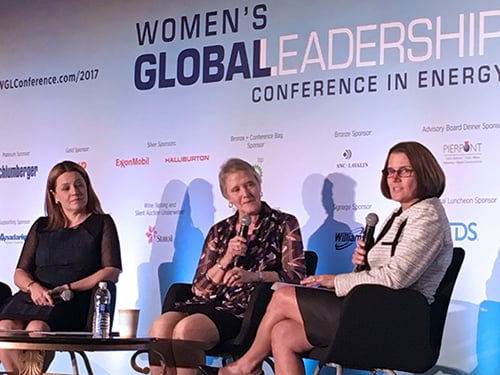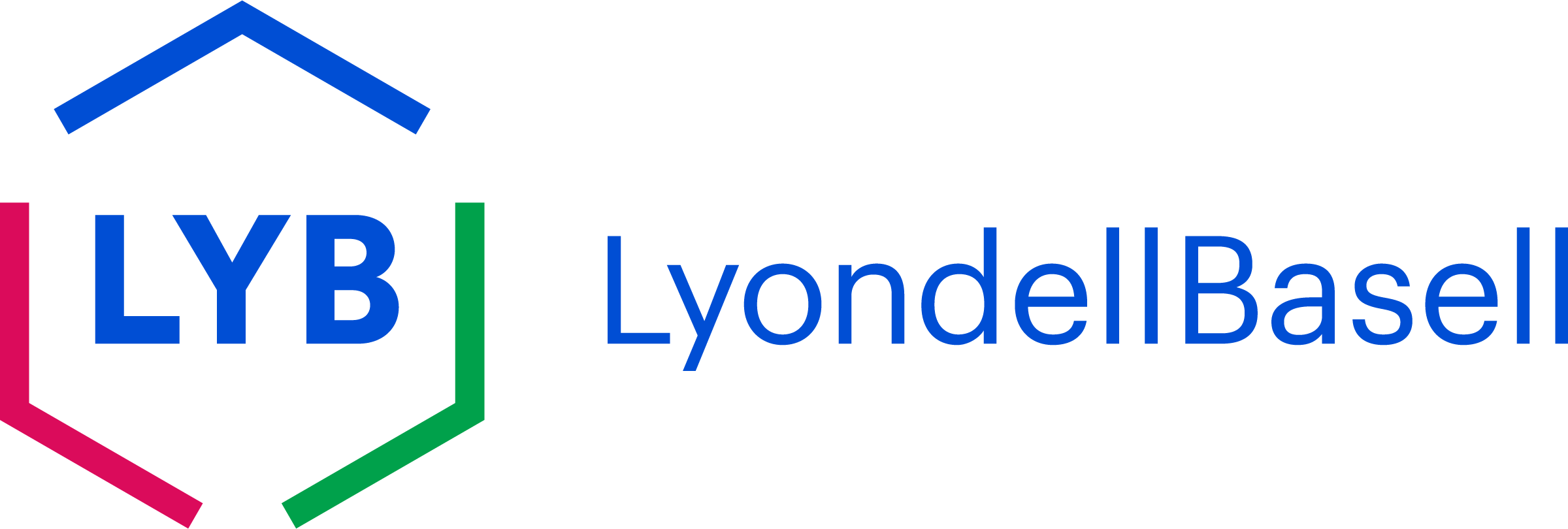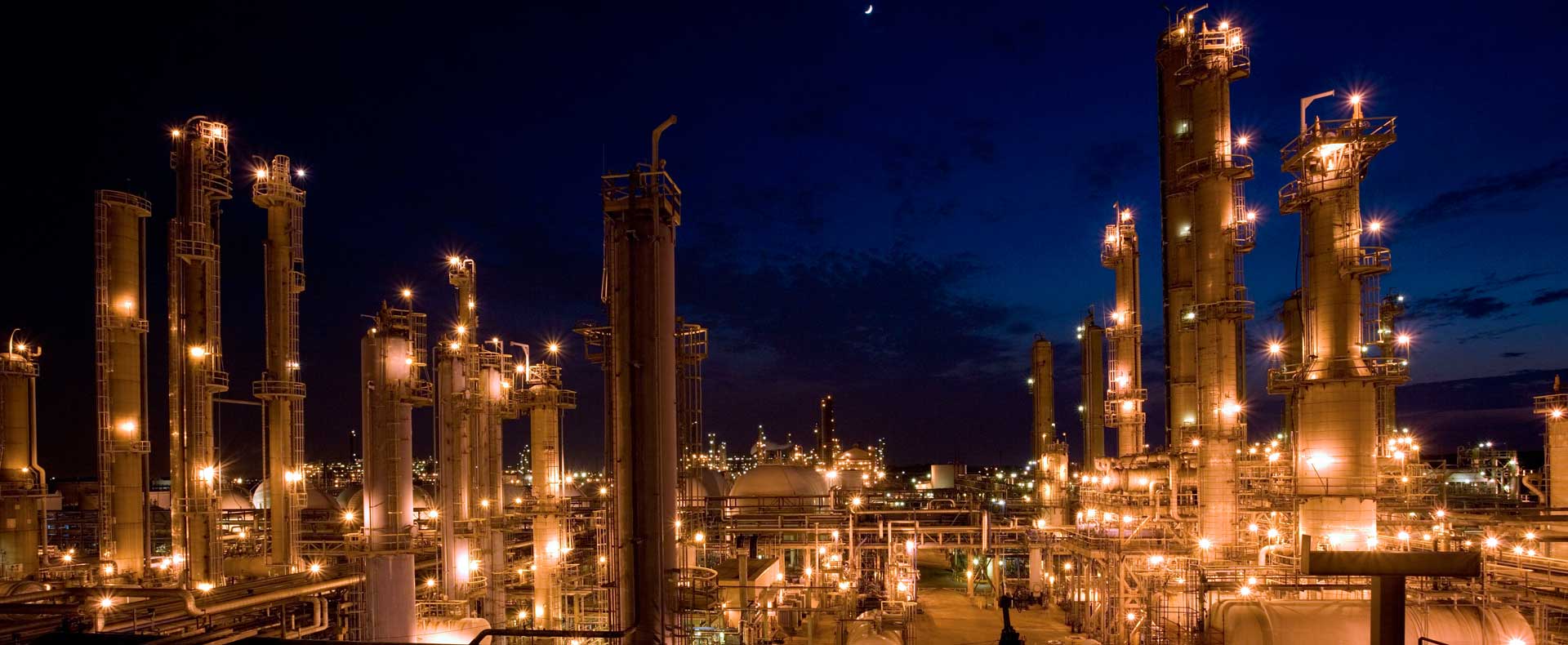LyondellBasell’s Kim Foley Shares Her Insights as a Female Leader in the Downstream Industry
November 08, 2017
HOUSTON, Texas – Nov. 8, 2017 – Kim Foley, site manager for LyondellBasell’s Channelview, Texas, complex, recently presented at the 2017 Women’s Global Leadership Conference (WGLC) in Energy held Nov. 1 and 2 in downtown Houston. WGLC is the largest women’s event in the industry and is targeted specifically to matters of female leadership, striving to provide meaningful discussion on all aspects of responsible stewardship ranging from energy security and geopolitics to personal career development.

The Channelview site managed by Foley is not only LyondellBasell’s largest manufacturing facility, but it is also the location of the company’s most significant capital investment project to date, the construction of a $2.4 billion propylene oxide/tertiary butyl alcohol plant, which upon completion will be the largest facility of its kind in the world.
Foley, along with Kendra Lee, CEO of Merichem, shared advice and anecdotes about their path to becoming female leaders in a male dominated industry during the panel discussion, “The Refined Woman: Making a Mark in the Downstream Industry.” The following are some of Foley’s insights about her experiences and the opportunities that lie ahead for women in forging their own leadership path.
Q: As a woman in the downstream industry, what kind of challenges have you experienced?
A: When I become pregnant with twins, the site became very concerned about my safety. The doctor shared a very good list of do’s and don’ts but my sheer weight gain had folks believing I would fall and get injured. I was sent home for three months to watch training videos and was very frustrated. As my safety perspective and maturity evolved, I recognized the company did the best thing by eliminating any safety risk to me and my daughters.
Q: What advice would you give young or mid careerists who are interested in working downstream?
A: Have several mentors and at least two females. There are many situations where you need balanced feedback and the reality is men and women process a situation differently. You need to listen to all feedback and figure out what changes you are comfortable incorporating.
Q: Can you share with us your home/life balance experiences as a woman in downstream?
A: Work/life balance changes over time. When my children were small, I focused on minimizing my office hours and worked hard to be fully engaged in their activities. How many boys can say they have had their mom as coach versus their father? Similarly, how many dads get home early from work to start dinner? My children did not have the typical household growing up. As my children got older, my husband retired and our family dynamics changed again. We went from a 50/50 parenting partnership to my husband being the primary parent. The key is your career can span 30 to 40 years and your work\life balance will change. Be flexible and understanding to the different stages in your life.
Q: Let’s talk about the growth of the downstream industry in the U.S.; do you feel there are more/better opportunities for women in downstream now or in the past? What about other areas within the supply chain?
A: Shale gas has revitalized North American downstream manufacturing. It has provided a feedstock advantage that enables us to compete with lower labor costs in developing countries. Ten to 15 years ago, I can remember sitting in a meeting with industry consultants who were telling us that North American manufacturing would shut down and we would be net importers. The good news is they were wrong; the bad news was it took several years to prove shale gas fracking. During this time, young adults were choosing other professions and the result is our industry has an experience gap. Some believe the gap is in 10 to 15 years of experience, others believe it is more like 15 to 20 years. Either way, for women and men, this gap now provides more growth opportunities for engineering professionals. Couple this with the recent growth in the downstream businesses and those opportunities are now expanded beyond engineering to HSE, finance, IT and HR professionals.
Q: To move upward in today’s downstream industry do you feel you need global experience and exposure? If so, when is the opportune time to gain that experience and exposure?
A: Today many products are sold internationally and I believe individuals who understand global markets, cultures and business drivers will be more successful. To have healthy discussions across different countries, you must understand cultural differences and social interaction preferences – whether it is email, phone, or face to face communications. Timing, planning, holidays, pre-meeting versus pre-reads, review, consensus building – these things need to be taken into consideration. There is not a best time to gain global experience but recognize you need it and humbly embrace the learning experience when you get it. You may need to adapt your style. Ask others before you begin assuming you know what the cultural preferences are.
Q: In a few words, tell us your advice for women in downstream over the next five years.
A: Aim high and own it! It is your career path; not someone else’s.
Media Contact: Meredith Matthews O: 713-309-3605 C: 281-217-6049 meredith.matthews@lyb.com


